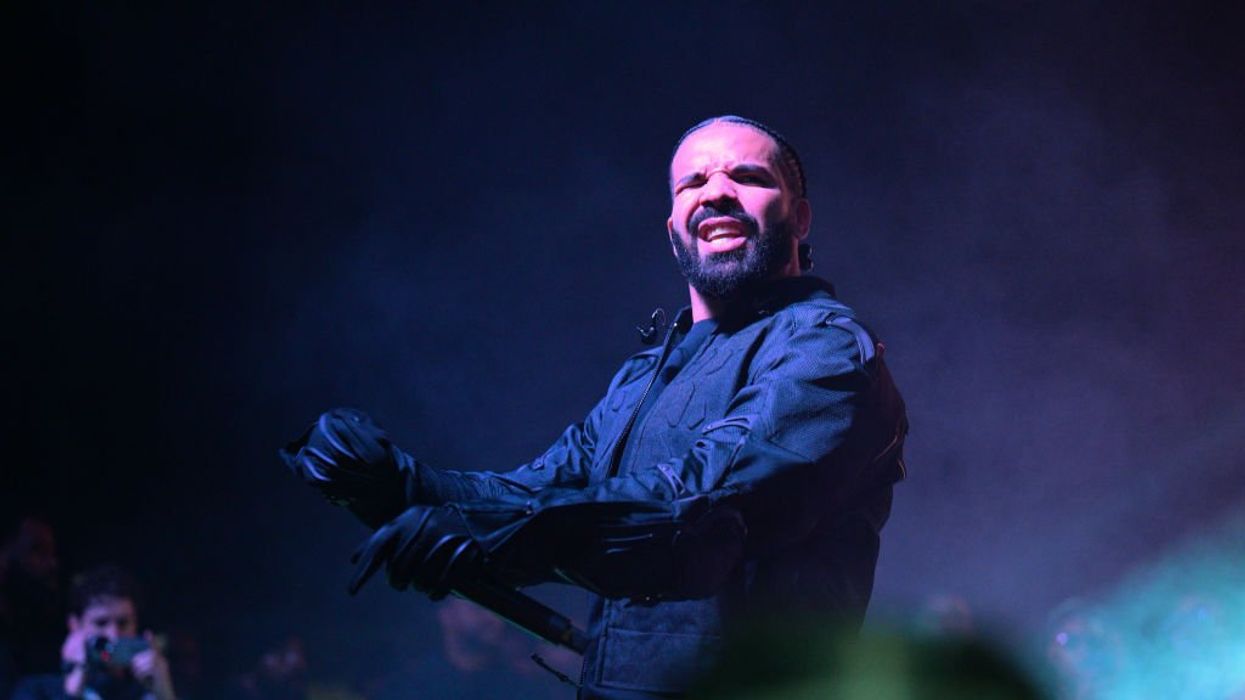The steel-driving man John Henry of American legend attempted to beat the machine and lost. Today, new technologies are steaming past America's top musicians and up the charts, but instead of railway ties, they are dropping beats.
Multiple streaming platforms have taken down a new viral AI-generated song featuring vocals reminiscent of both Drake's and the Weeknd's respective styles.
Although the musicians and their parent label Universal Music Group appear to have gotten their way in silencing the track, it's not clear whether they have a legitimate copyright claim or the right to do so. There are other recently released songs incorporating AI-generated celebrity sound-alikes that have been easy targets for complaints and removal since they contained borrowed instrumentation, lyrics, or other components that were copyright-protected.
For instance, Rihanna's voice was mimicked in a transmogrified version of the Beyoncé hit "Cuff It." Even if Rihanna proved incapable of taking legal action, Beyoncé and her label certainly were in a position to do so.
The 2-minute, 14-second song that made waves this week is, however, an original composition.
Music Business Worldwide
reported that the song is novel in composition and lyrics, but incorporates AI-generated vocals reminiscent of the voices of Drake and the Weeknd, whose real names are Aubrey Drake Graham and Abel Makkonen Tesfaye.
Michael Inouye, an analyst at ABI Research, told CNN that "AI could also have generated most of the song, lyrics and replicated the artists again based on the training data set and any prompts given to direct the AI model."
Roberto Nickson, the entrepreneur and designer behind
Eluna AI, evidenced how easy it was to emulate a celebrity's voice with AI in a recent Twitter video:
UMG complained and successfully had Ghostwriter977's song all but scrubbed from the internet.
It was removed this week from the streaming platforms Spotify, Apple Music, YouTube, Amazon, SoundCloud, Tidal, Deezer, and TikTok. According to
Axios, the tune had over 600,000 plays on Spotify and 275,000 views on YouTube before it was taken down on the respective platforms. Altogether, it was reportedly streamed over 15 million times.
UMG said in a
statement that its "success has been, in part, due to embracing new
technology and putting it to work for our artists–as we have been doing with our own innovation around AI for some time already."
"With that said, however, the training of generative AI using our artists’ music (which represents both a breach of our agreements and a violation of copyright law) as well as the availability of infringing content created with generative AI on DSPs, begs the question as to which side of history all stakeholders in the music ecosystem want to be on: the side of artists, fans and human creative expression, or on the side of deep fakes, fraud and denying artists their due compensation," added the corporate giant.
Axios has
stressed that generative AI, whether the product be sonic or visual, is a "legal minefield," particularly in this case where Drake and the Weeknd neither wrote nor sang the song.
There are presently lawsuits tackling the issue of AI systems using copyrighted works as inputs.
For instance, Getty Images filed a lawsuit in January against AI art generator Stable Diffusion, alleging that the company copied 12 million images to train its AI model "without permission ... or compensation,"
reported the Verge.
Getty said in a
statement, "It is Getty Images’ position that Stability AI unlawfully copied and processed millions of images protected by copyright and the associated metadata owned or represented by Getty Images absent a license to benefit Stability AI’s commercial interests and to the detriment of the content creators."
The results of such legal actions may set a precedent applicable to the release of songs like Ghostwriter977's, where potentially copyrighted content served to train AI models to create a novel product.
Like Blaze News? Bypass the censors, sign up for our newsletters, and get stories like this direct to your inbox. Sign up here!

